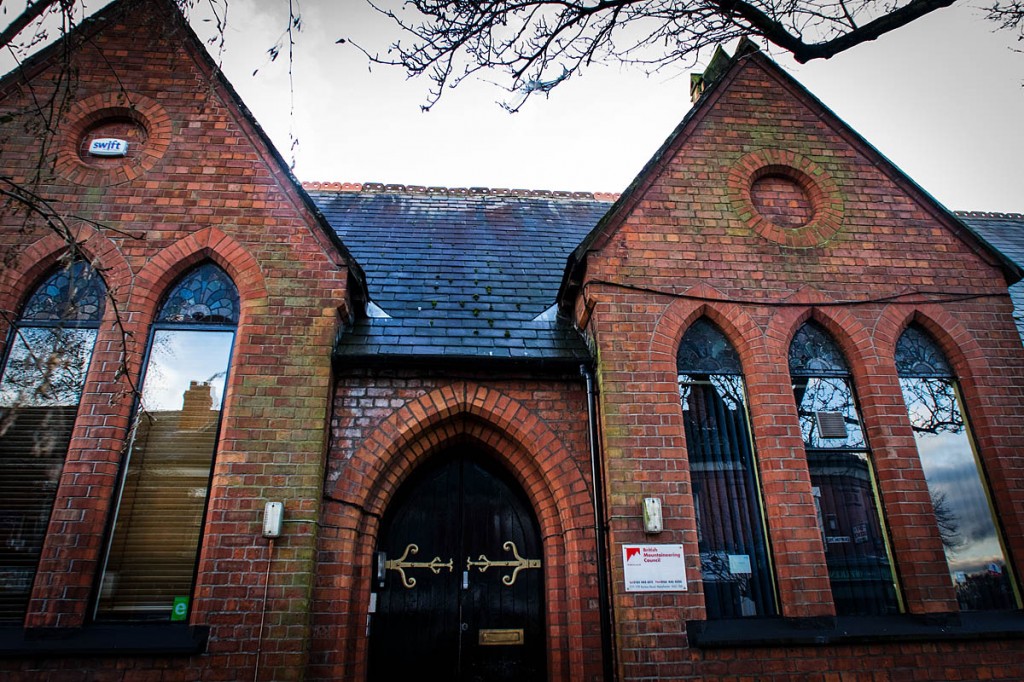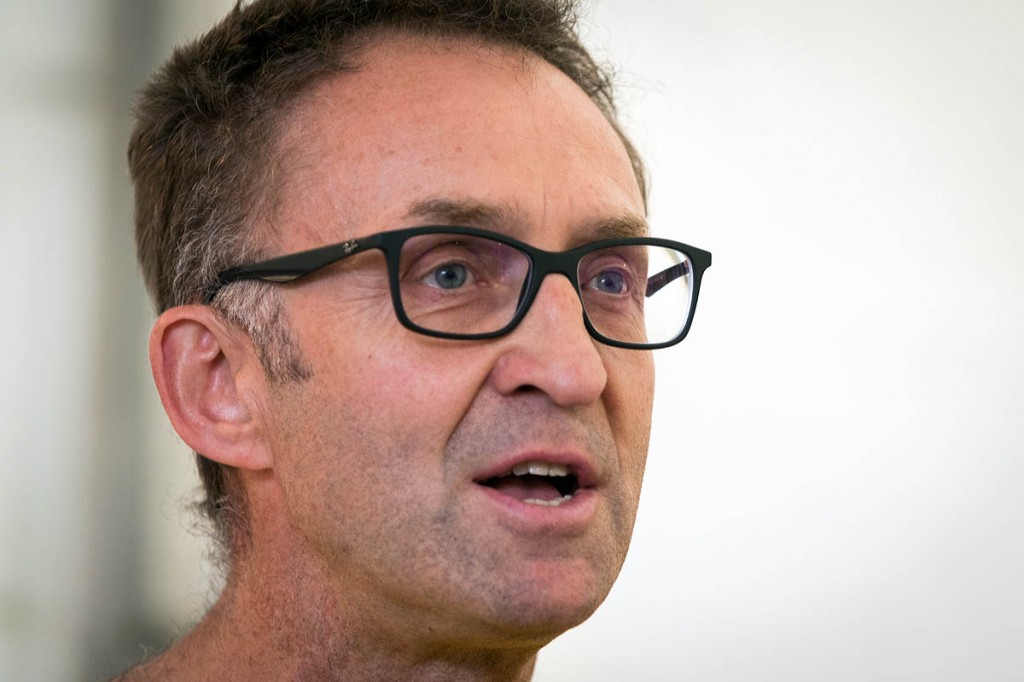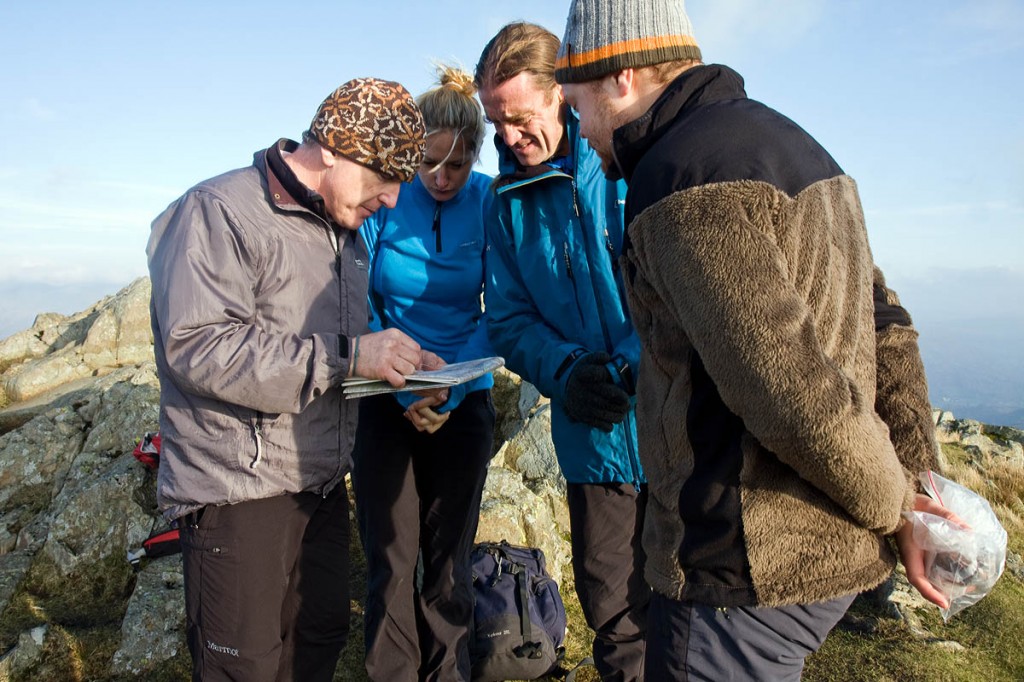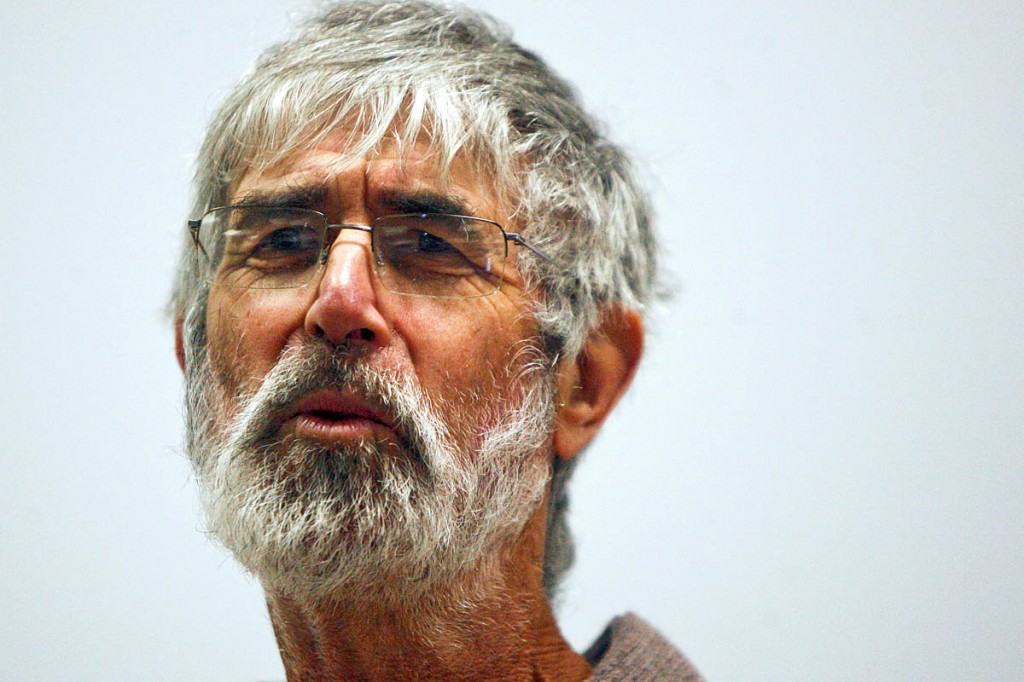The boss of the representative body for mountaineers in England and Wales has responded to the storm of criticism of the decision to change its name.
The British Mountaineering Council announced on Monday it would rebrand itself Climb Britain.
The organisation’s chief executive Dave Turnbull admitted it hadn’t admitted the ‘level of interest’ there would be in the change of name, which has upset many of the council’s members who are not climbers.
A large number of Climb Britain’s 56,000 individual members do not climb, but are hillwalkers. Anyone undertaking the national governing body walking leadership qualifications such as Mountain Leader, Hill and Moorland Leader and Lowland Leader is obliged to join a mountaineering council such as the now-renamed BMC as a stipulation for undertaking the training and assessment.
There are strong historical links between the BMC and the Plas y Brenin-based Mountain Training, which used to be known as the Mountain Leader Training Board.
Mr Turnbull said: “It’s been a rocky ride this last few days.” He said, since last week’s announcement, the Manchester-based organisation had been listening very carefully.
Comments on grough’s story and elsewhere on social media were overwhelmingly negative, with those supporting the name change heavily outnumbered by opponents of the decision.
Some posters also pointed out the new name does not reflect the geographical anomaly in the organisation’s name, as a separate body represents climbers, hillwalkers and mountaineers north of the border.
The Mountaineering Council of Scotland simultaneously with the BMC announced a name change, to Mountaineering Scotland.
Climb Britain said it would brand itself as Climb Cymru in Wales.
The BMC was criticised for the lack of consultation with its members, unlike the MCofS which did consult its membership.

The British Mountaineering Council headquarters in West Didsbury, Manchester. Photo: Bob Smith/grough
Mr Turnbull said: “We remain firmly behind Climb Britain and believe it is the right choice for the future of the organisation; the BMC has to keep moving on and stay relevant to new people as times change.
“We accept the need for wider debate so we’re proposing a period of active engagement in which we will get people together to discuss the issues. This will be done via the next set of area meetings together with some specific gatherings of groups such as clubs and the GB climbing team if there is interest or demand.
“I will personally attend as many of these as I can, alongside the president and or other senior BMC officials as and when they’re available.
“Climb Britain and the rebranding issue will then go back to the next national council meeting on 17 September for further discussion and a decision on the way forward.
“In the meantime, we will keep the Climb Britain logo out there and will monitor feedback from members so that by September we should have a much better feel for how it’s all working.”
Dave Turnbull, himself an accomplished climber who in 2011 made the first ascent of the Himalayan peak Gojung with Mick Fowler, said the decision had nothing to do with the bid to have sport climbing included in the Olympics.
The consultancy work on the name change was paid for by Sport England, he said. “Sport England is not involved with the Olympics; UK Sport is.
“The BMC gets financial support from Sport England, not UK Sport. Sport England funds projects like ours to encourage organisations to increase their commercial and external sponsorship income and thus reduce their dependency on Government funding.
“This whole process started well before the 2020 Olympics became such a realistic prospect; it’s a complete coincidence that the two things have come about at the same time.”
Mr Turnbull revealed the recommendation to change the council’s name initially came as a surprise to him. “Midway through last year, I was at a seminar in London when one of the speakers mentioned funding might be available to help sports organisations develop their commercial and sponsorship potential.
“The BMC has always struggled to attract sponsorship income on any kind of scale – we end up funding the bulk of our work ourselves – so I followed this up and eventually we were given the services of a reputable consultancy firm to help us work up ideas.
“This work looked at things like our membership structure and benefits package, travel insurance and sponsorship options in great detail and has been extremely useful.
“At the start of the process we secured some addition money, around £25,000, for a branding agency to take a detailed look at how people perceive the BMC and how we might be able to improve our image to connect with new people and stay relevant in the modern age.
“At the outset my expectation was that we’d probably end up with a recommendation to adopt a new BMC logo and some detailed brand guidelines about how to position ourselves.
“There was no specific brief to come up with new name for the BMC. It just evolved that way because the consultants came up with idea we felt had traction. For years we’ve pondered about the suitability of ‘mountaineering council’ in our name, but we’ve never been able to come up with an acceptable alternative. BMC as an acronym is OK if you know the BMC, but for new people it’s not obvious who we are or what we do.
“British Climbing has been bandied about over the years, but the word climbing is different to climb and would never be acceptable to our hillwalking members.
“Climb, on the other hand, does work in the context of ‘climb hills, climb mountains, climb rocks etc’. Other random options over the years have included British Mountaineering, British Mountain Sports or British Mountaineering and Climbing, none of which are hugely better than British Mountaineering Council and BMC.
“So, Climb Britain was thought up as a concept in March this year and we took it from there.”
The chief executive said this involved discussion amongst the BMC’s unpaid volunteer directors and past presidents including Dave Musgrove, Rab Carrington and Sir Chris Bonington and the MCofS, which, he said, was supportive. “There were some reservations, of course, but the overwhelming reaction was that the time – and the name – was right, so on 18 May the directors unanimously agreed to take the new name forward to the BMC national council meeting, which took place at Plas y Brenin on 18 June.”
He said: “The BMC has an effective democratic structure and we used this in reaching the decision.
“Complex or commercially sensitive issues can be extremely difficult or impossible to agree via widespread membership consultation and there are times when we rely on elected area reps to make judgement calls on big issues.
“That’s why they’re there, that why they give up their time to be involved.”
Mr Turnbull added: “For me personally, Climb Britain wasn’t love at first sight; it’s been a grower though.
“My initial impression back in March was it sounded a bit awkward and unusual, more like a campaign than a national body, a bit radical for the BMC. But I think the logo works well: it’s distinctive, builds on previous BMC logos and, when seen in conjunction with the ‘climb hills, climb mountains, etc’ strapline, presents a strong and clear message.
“Give it time, I say.”



John Elwell
31 July 2016sorry but there will be no more money from myself .
Gary D
31 July 2016"Give it time"? - I think what he means is "wait until the rebranding is complete and it's too late for you to do anything about it".
Brian Downes
31 July 2016The Executive have made a decision to re brand that seems very out of touch with grass roots membership. A grave error of judgement on their part. This has caused a storm of protest that has now prompted what many will see as a further 'sham' consultation.
What a mess!
Paul
31 July 2016"Anyone undertaking the national governing body walking leadership qualifications such as Mountain Leader, Hill and Moorland Leader and Lowland Leader is obliged to join a mountaineering council such as the now-renamed BMC as a stipulation for undertaking the training and assessment" - this statement is not true. You have to a member of a Mountaineering council to register and that is all.
Xose Portela
31 July 2016“In the meantime, we will keep the Climb Britain logo out there and will monitor feedback from members so that by September we should have a much better feel for how it’s all working.”
So, after 600+ comments on facebook of which I reckon 95% are against the new name and logo, you still need more feedback? Do you think people are just going to start liking it by magic? We DO NOT like it!
I have been a proud member of the BMC for several years. I cannot figure out why this stubborn insistence in forcing your members to like it.
I am sorry if I sound harsh but the whole thing is starting to sound a bit arrogant.
John Elwell
01 August 2016Direct debit cancelled.
Mary J
01 August 2016Panic over a name change? Those who can't cope with changes to names almost certainly won't be able to cope with a change in the weather either. I advise them to stay indoors.
Ian512
01 August 2016Could this have anything to do with Sport England's first Payment for Results review, which looked at the performance of the governing bodies it funds to increase the number of people playing sport? Those failing to achieve annual targets risk losing up to 20 per cent of their future funding.
In 2014 Sport England threatened to withdraw some funding from six NGBs including British Mountaineering Council (which receives £97,000). Apparently the number of people who play their sport has seen a regular fall and those NGBs needed to make significant changes to their approach to growing their sport.
Sport England is the brand name for the English Sports Council and is a non-departmental public body under the Department for Culture, Media and Sport.
Sport Scotland is an executive non-departmental public body of the Scottish Government, advises ministers and implements government policy for sport and physical recreation, government grants and lottery funds.
Perhaps the BMC and MCofS should remove themselves from the Government pocket or are they tied in by a threat that Sport England/Scotland would create their own Mountaineering NGB?
Sounds like pushy Government tactics to me.
Graham B
01 August 2016Membership cancelled
Mr Turnbull should stick to climbing mountains as he clearly hasn't got a clue if he thought he could slide this under the radar without expecting any "interest",
How moronic
Climb Britain sounds like an extension of Mike Ashley's empire....yes real Kudos
CJ Richards
01 August 2016The trouble with funding by Member's subscriptions is they get the idea they own the thing.
brian t
01 August 2016Its Boaty Mc Boatface all over again!
Ken B
01 August 2016Wow, so much fuss over a branding exercise...
My membership will remain, I do not care one little bit what they are called, whether I climb, romp, roam, ramble, scramble, walk or mountaineer up hills or mountains...
It IS just a name, get over it...
Mike Godfrey
01 August 2016Aside from the much discussed lack of consultation with members (and many of us are Individual Members, not members of Clubs), the 'Climb Britain' name creates total confusion with the situation in Scotland. Back in 2015, the 'Mountaineering Council of Scotland' (soon to be 'Mountaineering Scotland' after consultation with members) created 'Climb Scotland' as a body to promote climbing (specifically rock climbing and climbing on indoor walls) to young people. They did this without a £25k grant. We now have Climb Britain and Climb Cymru claiming to represent all mountain-goers. Ok, the MCofS and the BMC are separate organisations but they have worked pretty seemlessly up to now. Where is the joined up thinking BMC?
Gazza
01 August 2016Hmm, how long did Consignia last before they changed it back to the Post Office.....!
stigofthenest
01 August 2016All this nonsense is exactly what turns new members off.. I considered joining once just as I considered joining the Wainwright society/214 club.. But then I realised that I don't need it in my life. I've been hill WALKING for 10+ years now. I take friends walking, I walk on my own and I think I've done just fine so far.. Give me a compelling reason why I should join.
The new name for me though is about as dumb as it gets. I mean it could even be a windowcleaners union.
if you are going to be fad followers come up with an accronym that means something to people..
Were you all busy shuffling papers & having board meetings when the EPIC sign went up near Snowdon? Because its stuff like that you should be having something to say about.
You are clearly out of touch.
David Faulkner
02 August 2016Nostalgia isn't what it used to be…..
Lets hope the BMC ( Just can't call it that "thing" that they now call it) have the balls to make the right decision and make a ewe turn.
Why not "Mountaineering England" ? its good enough for Scotland, or do they know something we don't ;-)
Julian Noble
03 August 2016As many others have said the majority of people who go into the hills and mountains are walkers or at least walking not climbing as they proceed. Climbing is the term used for a rather more specialist activity. The name change has alienated the walking contingent and seems like some vapid television show title
Steuart
04 August 2016We already have ClimbScotland affiliated to MCoS to promote climbing as a sport. So clearly a bit more confusion with ClimbBritain.
OutdoorsAndy
04 August 2016Looks like yet another example of senior management been totally removed from what and for who they actually manage. They should enter politics, (i'm sure the Labour MP's would love em).
No member consultation is very odd.
And how much will all this have cost? As a paying member, I would like to see my fee's going to the point of the organisation, not some dodgy re-branding for the 21st century. (While I am wary of tradition, heritage to be proud of is IMO a good thing).
Given all the problems we face, this would be very low on my priorities. Perhaps they are awash with cash, then either invest it in something worth while or drop our fee's.
Please give us some costings for this, ones that include all the time spent by the senior team etc.
Steve Woollard
04 August 2016It looks like the consultation in September is a shame as Mr Turnbull said: “We remain firmly behind Climb Britain and believe it is the right choice for the future of the organisation; the BMC has to keep moving on and stay relevant to new people as times change."
Who are these "new people", indoor climbers aren't going to join the BMC even if it has a new name
David Faulkner
04 August 2016So its unanimous then.
British Mountaineering Council it is.
Loads of money saved on stationary too!
SH
05 August 2016To those who say 'get over it, it's just a name' you're missing the point, sorry. First of all, if it's just a name, why re-brand? (At a cost to Sport England). Secondly the whole point of an organisation should be summed up in its name, so a name is vital. The new name doesn't do this. Nor is this about people complaining or people not wanting to move forward. Far from it. But the new name and the way it has been handled is indicative of something. The logo has been foisted on its members, the BMC responses have been dismissive to be honest ('give it time' is not good enough, sorry). It has alienated the members it is supposed to support and done the very opposite of what the name was alleged to have been for (increasing members). Nor is the new branding inclusive and the reasons given behind it are unconvincing. The members don't think they own the BMC, but the BMC is there to represent its members. The very least they could have done was be more open (and honest?) about it. The responses since the re-branding do very little to convince members the BMC truly represent them or care about their voice. Mountaineering Scotland has handled things so much differently and effectively and shows how things should have been handled.
Roger Orgill MBE
18 August 2016The BMC is an historic body with a great tradition and track record. Founded by Geoffrey-Winthrop Young and Leo Amery in1944, it has stood the test of time and most certainly not qualify for re-branding, the flavour of the times.
On the early staff of Plas y Brenin and later Sports Council Liaison Officer to the BMC, MLTB ,UKMTB and the Ramblers, I'm dismayed at the suggested name change and would advise advocates of this proposed change to read-'The First Fifty Years of the BMC' edited by Geoff Milburn with Derek Walker and Ken Wilson to see something of the heritage.
Margaret
22 August 2016Good points Roger, but unfortunately history has little standing presently, despite the importance of knowing where you have come from. Just as you would when misplaced on the hill.